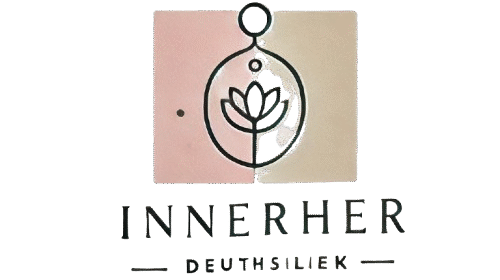Burnout in women is a state of emotional, mental, and physical exhaustion linked to stress and hormonal changes that affect both emotional health and physical well-being, with symptoms like fatigue, mood swings, and difficulty concentrating.
Burnout, emotionale Gesundheit, Frauen – klingt bekannt, oder? Viele Frauen fühlen sich erschöpft und fragen sich, ob mehr dahintersteckt als nur Stress. Was passiert wirklich mit Körper und Geist, wenn die Balance verloren geht?
Was bedeutet Burnout und wie zeigt es sich bei Frauen?
Burnout is more than just feeling tired; it is a state of emotional, mental, and physical exhaustion often caused by prolonged stress. For women, burnout can show up in unique ways due to societal pressures, multitasking roles, and hormonal influences. Common signs include chronic fatigue, irritability, and difficulty concentrating.
Women experiencing burnout may feel overwhelmed by daily tasks, struggle to maintain motivation, and notice a decrease in their usual enjoyment of activities. Emotional symptoms like anxiety, sadness, or feelings of helplessness are frequent, alongside physical complaints such as headaches, muscle pain, or digestive issues.
Recognizing Burnout in Women
It’s essential to identify burnout early. Watch for persistent tiredness not relieved by rest, changes in sleep patterns, or withdrawing from social interactions. Many women also report a sense of detachment from their work or family life.
Understanding these symptoms can help women take action to prioritize self-care and seek support before burnout worsens.
Die Verbindung zwischen emotionaler Gesundheit und körperlichem Befinden
The connection between emotional health and physical well-being is profound and often overlooked. When emotional stress builds up, it can directly affect how the body functions. For example, constant anxiety or sadness can lead to tension headaches, digestive problems, and low energy.
Research shows that negative emotions trigger the release of stress hormones like cortisol. Elevated cortisol levels over time can weaken the immune system, disturb sleep, and increase the risk of chronic diseases. This creates a cycle where poor emotional health impacts physical health, and the physical symptoms worsen emotional strain.
How Emotions Affect Physical Health in Women
Women may experience emotional struggles differently due to hormonal variations, especially during times like menstruation, pregnancy, and menopause. These fluctuations can amplify feelings such as irritability and mood swings, which then manifest in physical symptoms like bloating, fatigue, or muscle pain.
Maintaining emotional balance is essential to support overall health. Coping strategies such as mindfulness, exercise, and seeking social support help regulate emotions and reduce physical stress responses, promoting better health outcomes.
Typische Symptome von hormonellen Veränderungen und Erschöpfung
Hormonal changes in women can cause a variety of symptoms that often overlap with feelings of exhaustion and burnout. These changes might happen during menstrual cycles, pregnancy, postpartum, or menopause. Common symptoms include fatigue, mood swings, irritability, and difficulty concentrating.
Other physical signs can be weight gain, constant bloating, headaches, and disrupted sleep patterns. Women may also experience hot flashes, night sweats, or changes in libido. These symptoms are often misunderstood or dismissed as stress, making it harder to find relief.
Recognizing the signs
Paying attention to recurring symptoms and their timing can help identify hormonal imbalance. For example, if fatigue and irritability increase monthly or persist beyond usual stress periods, it may indicate hormonal shifts linked with exhaustion.
Addressing these symptoms often requires a multi-faceted approach including lifestyle changes, balanced nutrition, gentle exercise, and sometimes medical support. Understanding the root causes helps women regain control over their health and energy.
Alltagsgewohnheiten, die emotionale Gesundheit unterstützen
Everyday habits play a key role in supporting emotional health, especially for women dealing with stress and burnout. Simple routines like regular physical activity, balanced nutrition, and quality sleep can significantly improve mood and energy levels.
Practicing mindfulness or meditation helps calm the mind and manage anxiety. Even spending a few minutes daily focusing on breathing can reduce stress hormones and increase feelings of well-being.
Social connections and emotional health
Maintaining strong relationships with friends and family provides emotional support and reduces feelings of isolation. Talking openly about feelings and challenges contributes to resilience and mental clarity.
Limiting screen time and setting boundaries with work can prevent overwhelm. Creating a daily routine that includes moments for relaxation or hobbies nurtures balance between responsibilities and self-care.
By integrating these habits, women can protect their emotional health and build a foundation for lasting well-being.
Natürliche Wege zur Stärkung der inneren Balance

Natural ways to strengthen inner balance focus on nurturing both mind and body without relying on medication. Techniques like yoga, meditation, and breathing exercises can reduce stress and restore emotional calmness.
Nutrition plays a vital role too. Consuming a balanced diet rich in vitamins, minerals, and antioxidants supports hormonal health and energy levels. Foods like leafy greens, nuts, and fatty fish provide the nutrients needed for emotional stability.
Herbal remedies and supplements
Some herbs like chamomile, lavender, and ashwagandha are known for their calming properties. These can be used in teas or supplements to promote relaxation and reduce anxiety.
Regular physical activity also enhances mood-boosting chemicals like serotonin and endorphins. Even moderate exercise like walking or swimming helps maintain balance and reduces fatigue.
Practicing gratitude and mindfulness daily encourages positive thinking and emotional resilience. Together, these natural methods help women regain strength and improve their overall well-being.
Geschichten von Frauen, die Burnout überwunden haben
Many women have faced burnout and found remarkable ways to recover and thrive again. Their stories often share common themes: recognizing the problem, seeking help, and making lifestyle changes to regain balance.
One woman described how she felt constantly exhausted and disconnected from her family. By prioritizing rest, therapy, and gentle exercise, she slowly rebuilt her energy and emotional health.
Another shared how changing her work environment and setting clear boundaries helped her reduce stress significantly. She emphasized the importance of asking for support from colleagues and loved ones.
The power of community
Joining support groups or online forums provided many women with a sense of belonging and understanding. Sharing experiences encourages healing and inspires new strategies to manage burnout.
These stories highlight that recovery is possible with patience, self-compassion, and practical steps. Each woman’s journey is unique but shows that burnout doesn’t have to define one’s life.
Taking care of emotional health is key for women facing burnout
Understanding the signs and symptoms of burnout and hormonal changes is essential. By adopting healthy habits, practicing self-care, and seeking support, women can regain their energy and balance.
Natural methods like mindfulness, exercise, and proper nutrition play a big role in strengthening emotional and physical well-being. Listening to stories of others who have overcome burnout can inspire and motivate positive change.
Remember, recovery takes time and patience, but with care and compassion, it’s possible to find lasting health and happiness.
FAQ – Common questions about burnout and emotional health in women
What are common signs of burnout in women?
Common signs include chronic fatigue, irritability, difficulty concentrating, and feeling overwhelmed by daily tasks.
How does emotional health affect physical well-being?
Poor emotional health can lead to physical symptoms like headaches, digestive issues, and weakened immune function due to increased stress hormones.
What lifestyle habits support emotional health?
Regular exercise, balanced nutrition, quality sleep, mindfulness, and maintaining social connections support emotional health.
Can hormonal changes cause symptoms similar to burnout?
Yes, hormonal fluctuations can cause fatigue, mood swings, and physical symptoms that overlap with burnout.
Are there natural ways to improve emotional balance?
Practices like yoga, meditation, herbal supplements, and a nutritious diet can help strengthen emotional and hormonal balance naturally.
How can sharing recovery stories help women with burnout?
Hearing others‘ experiences creates a sense of community, offers practical advice, and inspires hope for recovery and resilience.

